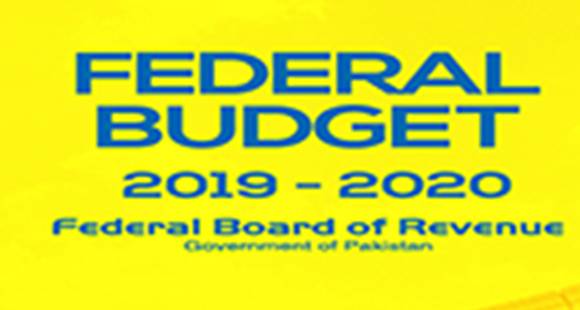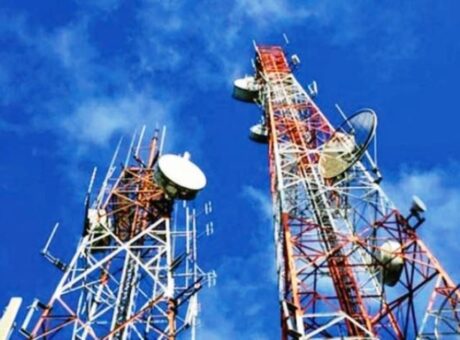ISLAMABAD: The government has taken harsh stance against persons having taxable income but not on the tax roll.
In this regard the law has been introduced under which persons not appearing on the Active Taxpayers List (ATL) and their amount withheld on transactions will be treated as unexplained.
Commissioners of Inland Revenue, Federal Board of Revenue (FBR) have been empowered to make assessment of income of such persons and issue notices.
A budget commentary issued by EY Ford Rhodes Chartered Accountants said that the concept of filers and non-filers was introduced in the Ordinance through the Finance Act, 2014.
Through this concept a distinction was created between person who duly filed their tax returns and the remaining persons who were considered non-filers.
The basic intention of the legislature was to obtain documentation and compel the non-filers to become registered tax filers.
Over the years, major distinction was introduced in the rates of tax withholding under various sections of the Ordinance to make the non-filers suffer heavy withholding of tax so that they may be compelled to ultimately come within the tax net and file proper declaration of their tax returns with FBR.
However, over the last five years, it has been observed that the percentage of increase in tax filers has not been significant and the numbers of tax filers is still quite low as compared to other comparable economies.
The present government has been talking about broadening of the tax base more strongly and the Prime Minister himself has on many occasions indicated his strong desire to significantly broaden the tax base.
It is now proposed to enact a separate schedule in the Ordinance to deal with persons who are not on the ATL i.e. who are not in the tax net and are not filing their declaration so far.
In this connection, Section 100BA has been proposed which governs the collection or deduction of advance income tax, computation of income and tax payable by such persons.
The Tenth Schedule generally provides that where ever tax is required to be deducted or collected under any provisions of the Ordinance from a person whose name is not appearing in the ATL, the rate of withholding will be doubled in case of deduction or collection from such persons.
However, the schedule provides exception in case of the following payments –
(1) Salary;
(2) Payment to non-residents other than on account of royalty, fees for technical service, insurance premium
(3) Payment to a Permanent Establishment in Pakistan of a non-resident person other than on account of providing services or contract or any general payment to a non-resident.
(4) Payment on account of exports
(5) Tax deductions from payment of rent
(6) Tax deductions from withdrawal of balance from pension funds
(7) Tax collection from cash withdrawal from a bank
(8) Tax collection on banking transactions
(9) Collection of tax by NCCPL
(10) Collection of tax on domestic or commercial electricity consumption
(11) Tax collection from steel melters
(12) Purchase of air tickets
(13) Functions and gatherings
(14) Cable operators
(15) Educational institutions
(16) Dealers and commission agents
(17) Purchase of international air tickets
(18) Non-cash banking transactions
(19) Payment for use of machinery and equipment
(20) Remittance of education related expenses
(21) Extractions of minerals
(22) Tobacco
The Schedule seeks to provide a mechanism where a withholding agent is satisfied that the person not appearing in the ATL is not required to be a tax filer and hence the deduction of tax should not be attracted from payments to such persons.
In such a situation, the payer would be required to furnish an application to the Commissioner in writing electronically providing the details of the person from whom he intends not to collect tax, giving details about the payee and the nature of payment and the basis on which he is not liable to be a tax filer.
The Commissioner on such application would decide the matter within 30 days and direct the payer accordingly.
Assessment of such person
— The Schedule requires the Commissioner to undertake a provisional assessment of the person from whom tax has been withheld under the Schedule but he has failed to file the return of income within the prescribed time or extended time.
— The provisional assessment is proposed to be carried out within 60 days of the due date of filing of return. The income of such person in such a case shall be imputed on the basis of tax that has been withheld at source and shall be treated as un-explained income.
— Once the provisional assessment has been finalized and served on such person, he can file a return of income within 45 days of the service of the provisional order. In which case the provisional assessment shall stands abated.
— If a return of income is not filed within 45 days of service of order of provisional assessment, then such assessment is to be treated as final assessment order. In such a case the Commissioner is also proposed to be empowered to pass an order within 30 days of finalization of assessment for imposition of penalty on account of non-furnishing of return and concealment of income.
— The Schedule also seeks to empower the Commissioner to amend an assessment on the basis of definite information from an audit or otherwise.
Consequent to the proposed enactment of the Schedule, to withdraw concept of filers and non-filers from various provisions of the Ordinance, several amendments have been proposed in various withholding provisions to remove reference to Filer and non-Filer.
Similarly the restrictions introduced on purchase of immovable property and moveable property on Non-filers in Section 227C are also proposed to be abolished.





